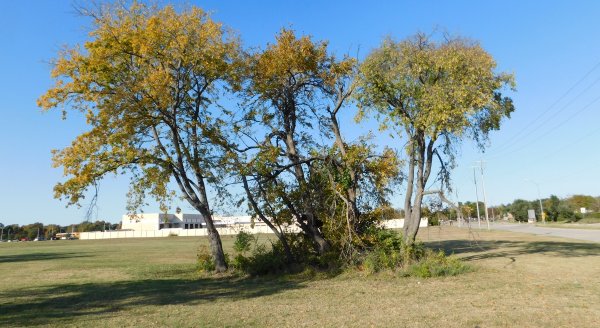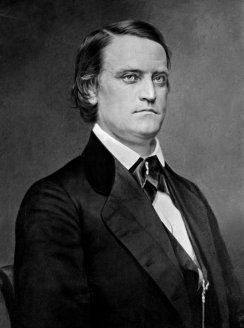Return to Home Page or Historic Sites or Outside Downtown SOUTH TOUR
Locations
SITE OF BRECKINRIDGE
|
|
From the forthcoming book, RICHARDSON: A History of One of the Biggest Small Cities in Texas
When Anglo-American settlers first arrived in the area where Richardson now stands, the nearest settlement was a tiny spot on the map--the word "town" doesn't really seem to apply--named in honor of U.S. Vice President John C. Breckinridge, a Kentuckian, and one of three candidates defeated by Abraham Lincoln in the 1860 presidential election. According to one old-timer, R. M. "Dick" Thompson, Breckinridge consisted of a blacksmith shop, a general store, "and [a] fine hotel [run] by Mr. Floyd." The settlement was also, he said, "the point where the stage-drivers stopped and changed horses." On September 27, 1858, a United States post office was established at Breckinridge, with Charles G. Shane, Jr. as postmaster.
Floyd's Inn, as it came to be known, was a two-story wooden house belonging to John B. Floyd, a former Kentucky legislator who was most almost certainly the person that decided to call the settlement "Breckenridge." The house was built in 1856, according to one account, with planed lumber that had to be hauled all the way from Jefferson, Texas. In a 1930 interview with Dallas Morning News columnist W. S. Adair, Dick Thompson claimed that his brother, A. R. M. Thompson, opened a blacksmith shop at Breckinridge. Unfortunately, nothing can be found to verify this statement. According to the 1870 federal census, Joseph Broad, a former resident of Trimble County, Kentucky and father-in-law of two of John B, Floyd's sons, was the blacksmith at Breckinridge. Since Broad was a blacksmith before coming to Texas also, its more likely that Thompson, who was very young when he lived at Breckinridge simply misremembered.
Thompson seems to have misremembered other names as well. For example, he also said that the general store at Breckinridge was run by a Mr. Martin, who "handled many lines of goods wet and dry." It was "in fact…a sort of department store," he added, where "whisky by the pint, quart, and gallon" could be purchased. However, no record of a Mr. Martin as a general store owner at Breckinridge can be found either.
Thompson, who was just a lad during Breckenridge's heyday, also recalled throwing empty sardine and oyster cans into the air for "pistol-experts" Bill and Joe Collins "and Bill Pettit of Dallas" to shoot at. "These pistol shooters," remembered Thompson, "seldom missed a can and Bill Collins often shot two or three holes in a can before it came to the ground." The old-timer remembered too that a Mrs. Scantelon, whose husband owned a race horse, "often joined in these feats [of] marksmanship, and could easily beat them all except Bill Collins." Thompson also recollected that there were races on Saturdays at Breckenridge, where people could bet on the horses.
LOCATION: Today, nearly all trace of Breckenridge, which lasted only fifteen years (from 1858 to 1873) has been erased by the passage of time. It was located where a small grove of trees now stands on the west side of Abrams Road, just slightly north of Walnut Street and the campus of Richland College and also Restland Memorial Park, which lies perhaps two hundred years or so to the west.
This website copyright © 2021 (except where noted) by Steven Butler, Ph.D. All rights reserved.


